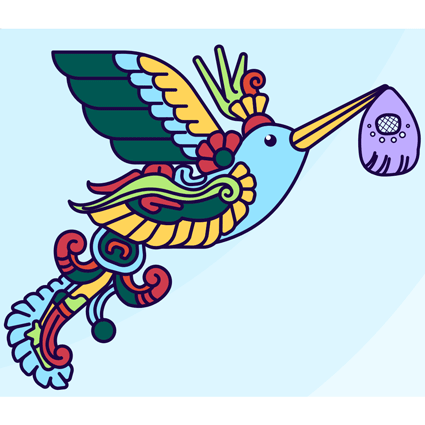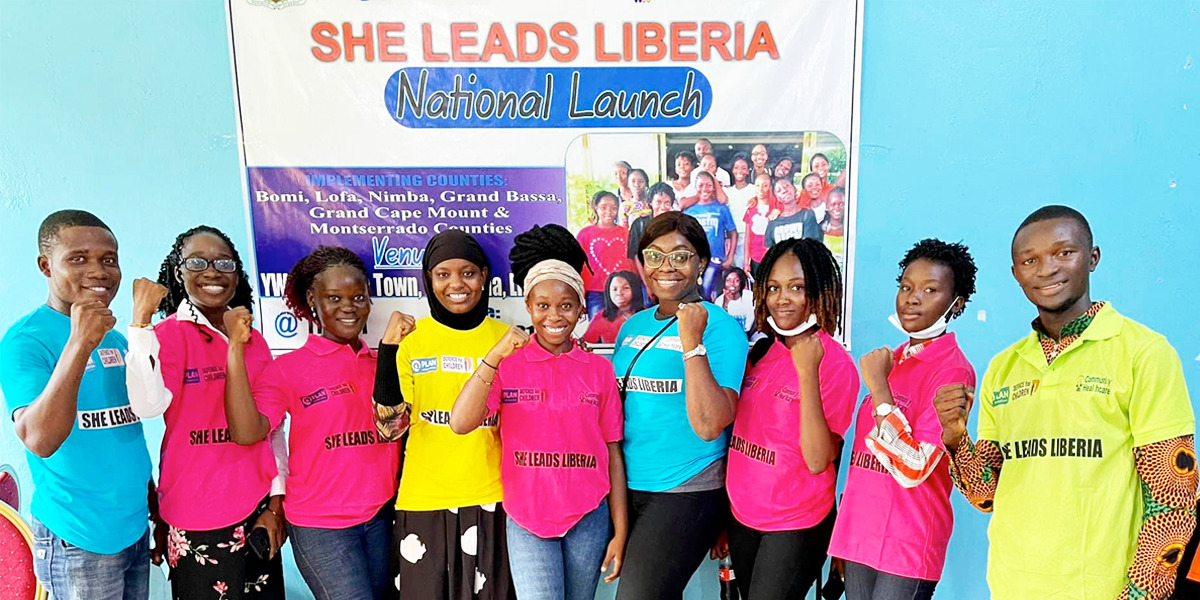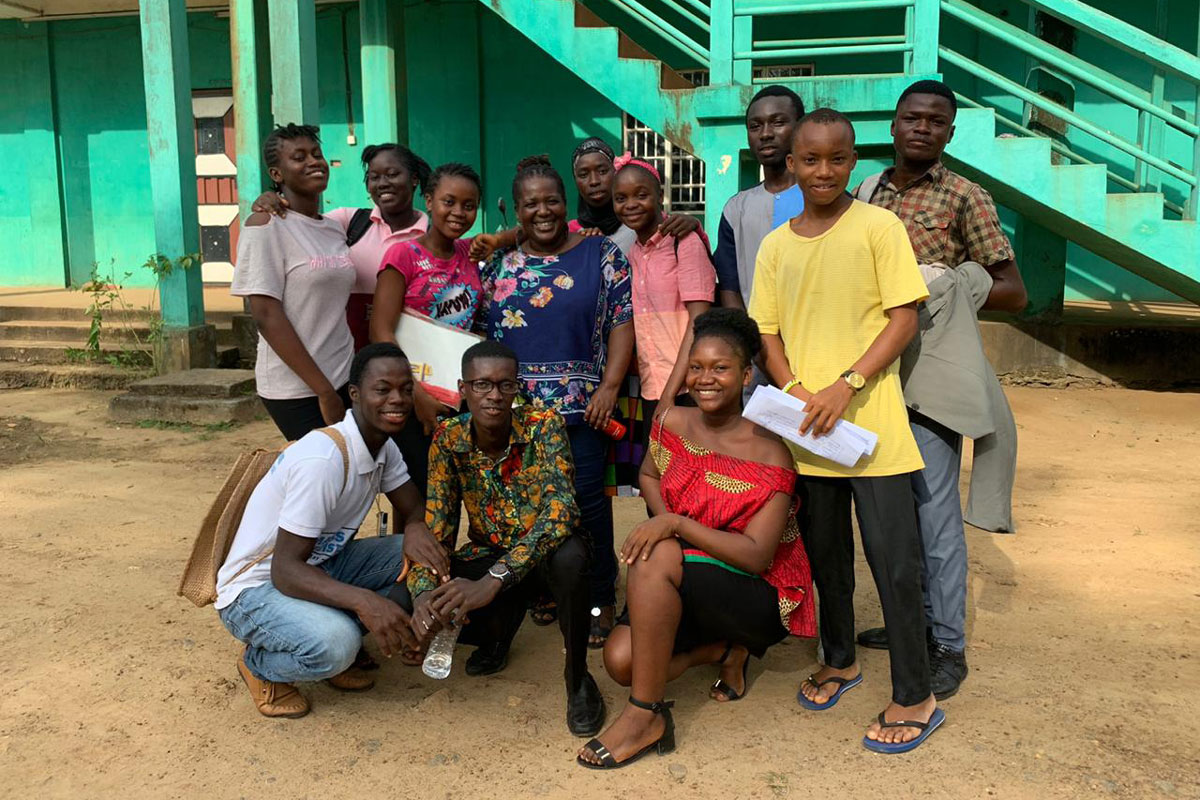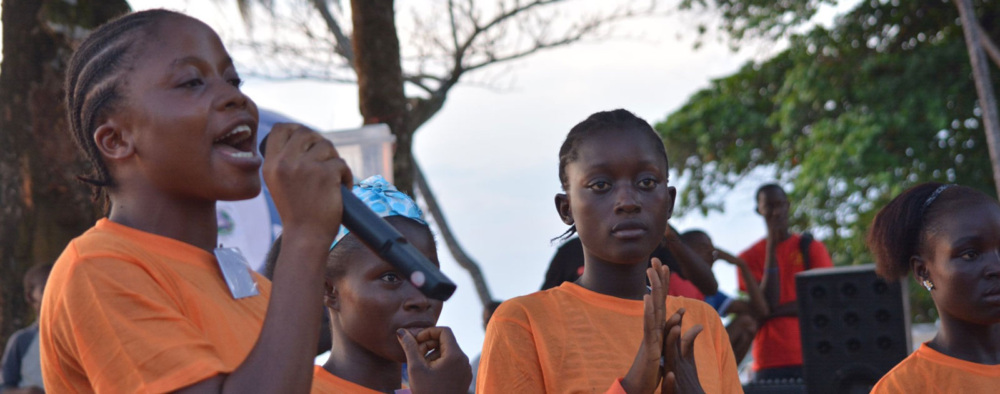
Gender justice
Gender justice, Safety and wellbeing
In April 2020, Global Fund for Children launched the Ending Violence, Empowering Girls initiative to support a network of six community-based organizations in West Africa. These women- and youth-led organizations are addressing the root causes of violence against girls by empowering adolescent girls to advance their rights. After working together for more than a year, they share how the initiative has impacted their work and how they’ve helped shape it.
The Ending Violence, Empowering Girls initiative is a partnership with Tides Foundation and People’s Postcode Lottery.
Community Healthcare Initiative (CHI) in Bopolu, Liberia:
CHI is proud to say that working on this initiative has given us broader ideas and new methodology in working with members of the community. We have adapted to a more unique and significant approach in working with the community where we provide the basic tool and allow them to lead their own development. Now, we have an emerging network of young girls who are providing peer education on violence [prevention] and their sexual and reproductive health and rights as well.
Integrated Development Program for Teenagers (IDP4T) in Bo, Sierra Leone:
The Ending Violence, Empowering Girls initiative with other cohort members has been a very great learning experience. Building the capacities of the adolescents, their parents, and the community is kind of exciting and challenging. Exciting because during the process, you meet different people who have different values and norms and who join you with this great idea of reaching a goal.
[image_caption caption=”Naomi Tulay-Solanke, the founder of CHI, with a group of young people at the national launch of a new CHI project called She Leads. © Community Healthcare Initiative” float=””]

[/image_caption]
Women Against Violence and Exploitation in Society (WAVES) in Bo, Sierra Leone:
This initiative, unlike other initiatives, encourages girls to come up with their development initiatives and they are empowered to work on these initiatives with support from the organization. On the contrary, other organizations have suggested development initiatives to girls and expected the girls to work on them.
Wi Gial Pekin Dem Foundation (WGF) in Kenema, Sierra Leone:
There are several [grantmaking] organizations supporting ending violence against women and girls. Some provide technical support, while others provide trainings, funding, or information. Most of these [grantmaking] organizations, however, are focused on [supporting] bigger and more established organizations. This is a sharp contrast to GFC, which focuses on developing young, under-resourced community-based organizations doing great work in rural communities.
Center for Advocacy and Sustainable Empowerment (CASE SALONE) in Bo, Sierra Leone:
The initiative has equipped staff from our organization with the knowledge to empower and train girls to take up leadership roles and to protect their rights and gain autonomy over their bodies. We have raised awareness to let the communities learn that adolescent girls can fully reach their potential if they are provided the space and opportunities.
Children’s Forum Network – Kenema (CFN-Kenema) in Kenema, Sierra Leone:
This initiative has greatly helped [CFN-Kenema] to launch and change its advocacy programs. It has engaged in a community-led training workshop, it has held the first-ever girl child summit in Kenema District, and it has also held a social therapy session for children living on the streets.
The initiative also gives free space to organizations to continue the good work they have been doing, rather than force them to work on activities and reports. This has given [CFN-Kenema] adequate time and space to foster its decision-making process via astute planning and consensus building.
CASE SALONE:
The collaboration among participating organizations has grown stronger so far. Other organizations in the initiative now extend invitations to attend their programs. Cohort members have shared funding opportunities with other members, a sign that we have taken ownership of the initiative.
IDP4T:
We are gradually taking ownership as we are still in the process of learning new methods and skills, but one thing that has touched us is the cohort coming together and working together to end violence against women and girls. This gives us the courage to build a system of strong ownership and sustainability.
CHI:
CHI sees its experience working together with other organizations as inspirational and as a learning opportunity. Every time member organizations come together, the results are impactful because learning can occur, stronger networks are built, and new methodology and approaches can be adapted.
WAVES:
Our collaboration with the other organizations has increased our knowledge and skills for dealing with issues of violence against children, especially girls. From the collaboration, we have learned different skills for addressing sexual and gender-based violence.
CFN-Kenema:
The participation of girls in [CFN-Kenema] has significantly increased as girls participate in meetings and other events that foster their skills in speaking up on the issues affecting them. The number of girls occupying key positions in the organization has increased. More girls now lead programs and meetings and play a meaningful part in the organization’s decision-making.
[image_caption caption=”Amé Atsu David, GFC’s Regional Capacity Development Specialist for West Africa, poses for a photo with CFN-Kenema members. © CFN” float=””]

[/image_caption]
CHI:
Girls are becoming mentors to their peers by sharing ideas on issues that affect them and how they can claim their rights. With their community leadership, girls are now building more confidence and brave spaces to address issues that affect them.
WGF:
The mentees and other girls benefiting from [WGF’s] programs are now positive change agents and serving as examples in the community. The mentees know their rights and how to carry out their responsibilities in society.
CASE SALONE:
Changing the mindset of community partners is not always an easy task to perform, but what will be achieved in the end is worth the effort.
IDP4T:
One thing we have learned is that the girls know the issues affecting them, but due to a lack of resources and a lack of knowledge they become quiet because adults mostly leave them out when it comes to decision-making.
WAVES:
Building girls’ and boys’ capacity stimulates social change. Empowering girls to take the lead ensures the sustainability of a project.
Editor’s note: Responses have been edited for length and clarity.
Header photo: A youth leader speaks during a meeting in Liberia. © Community Healthcare Initiative
